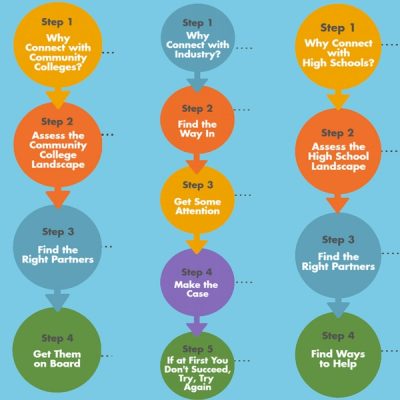Companies
Ambassadors of Science: Helping Others Understand a Science-Based Framework

By Janine Saunders, EdD, MPH
Program Manager, ETR
March 16, 2017 — Scotts Valley, CA
Neil deGrasse Tyson famously said, “The good thing about science is that it’s true whether or not you believe in it.” During this time of fake news and alternative facts, promoting science-based approaches is more important than ever. If you’re like me, you encounter people every day who, knowingly or unknowingly, are making decisions based on false information.
Some people don’t know the facts. Others simply don’t care. For those who are open-minded, however, the chance to learn more about important issues from a credible source (you!) may make a big difference.
February is National School-Based Health Care Awareness Month. What a great opportunity to spread some facts about school health. Here are a few good ideas to get you started!
5 Easy Steps
1. Start by asking questions! Too often, social scientists jump right into talking about the facts. And why not? Facts are cool.
However, we’ll be better ambassadors of science if we first demonstrate our openness to others’ ideas. When we find out more about their questions or concerns, we can craft our message in ways that address their greatest interests. Ask your friends what they already know about school-based health and start there.
2. Learn five interesting science-based facts about school health. What school health science issues are most compelling to you? Get clear on the details and have authoritative resources to back them up. Some of my favorites include:
- Teaching comprehensive sex education in schools doesn’t increase the likelihood that students will have sex, or will start having sex earlier.
- Most American parents support the teaching of comprehensive sex education in schools.
- School-based health centers (SBHCs) increase students’ access to health care and reduce emergency room visits.
- Adolescent girls who have access to an SBHC are more likely to receive reproductive preventive care.
- Students who use SBHC mental health services show improved attendance and behavior.
3. Talk about the “fallacy of one.” We all carry natural biases based on personal experience. Most people can point to a person that they know who whose life experience ran contrary to prevailing scientific evidence (e.g., “My grandfather smoked a pack a day his whole life and lived to be 98.”)
We need to point out that scientific conclusions about groups cannot be made on the basis of a single case. While it is true that one person could smoke and live to be a nonagenarian, it is far more likely that a smoker will die prematurely. On average, in fact, smokers die ten years earlier than nonsmokers. For every person who dies from smoking, there are another 30 living with a serious tobacco-related illness.
And since we are talking about school health, it is important to remember that each day more than 3,200 adolescents smoke their first cigarette.
4. Enthusiastically share the beauty, fun and wonder of science. Once of my favorite resources is the IFLScience website.
Continue reading article here: http://www.etr.org/blog/ambassadors-of-science-helping-others-understand-a-science-based-framework/
###
Tagged ETR








